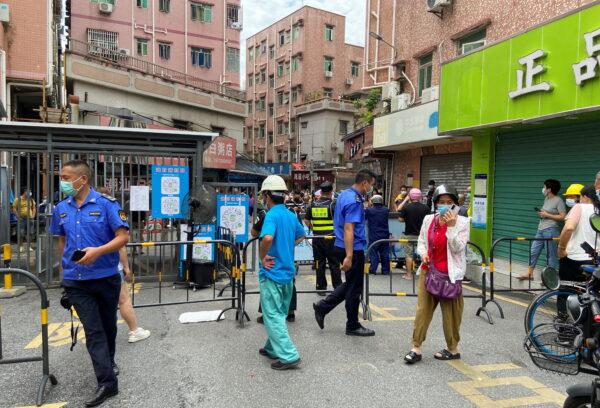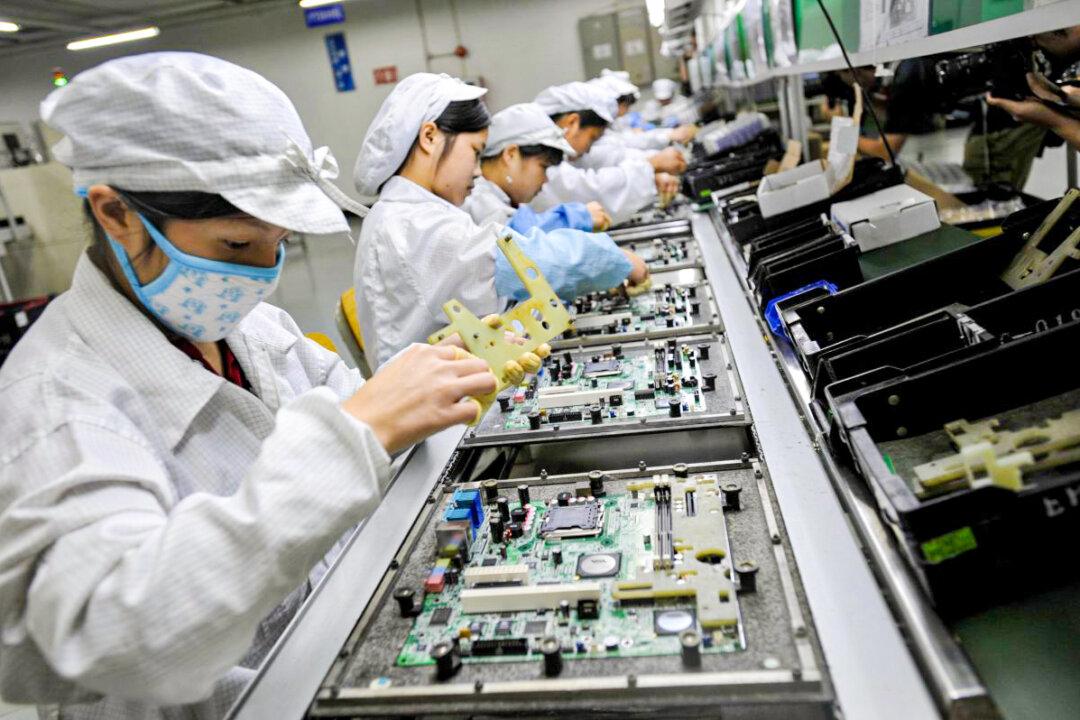China’s ruling communist party (CCP) has locked down the world’s largest electronics market and the urban districts in its megacity Shenzhen, which is China’s economic center. Meanwhile, a Chinese think tank warned of major risks to China’s economy, calling on the authorities to change the “zero-COVID” policy to help economy.
After 11 local COVID-19 cases of the Omicron variant were officially reported by authorities in Shenzhen on Aug. 29, three of the city’s ten districts; Futian, Longgang, and Luohu, were locked down.
Futian was ranked second in its contribution to Shenzhen’s GDP in 2021, Longgang ranked third, and Luohu ranked sixth. Together, the three districts make up for more than 40 percent of Shenzhen’s GDP.
According to 2020 China census, Futian’s population is 1.55 million, Longgang district 4 million, and Luohuo district 1.14 million.
None of the 11 infected patients live in or have visited Longgang district. However, the district is still being shut down.
Shutdown of World Largest Electronics Market
The world largest electronics market—the Huaqiangbei business district, which is located in Futian District—has also been closed off, bring trade for electronic parts to a halt.Local authorities announced the market will be closed until Sept. 2. The market has thousands of booths selling microchips, phone parts, and other components to manufacturers.
The CCP’s extreme COVID-19 control measures—which have now put 6.70 million people in three Shenzhen districts under lockdown over 11 reported cases—have caused wide complaint.
A Shenzhen resident surnamed Yang told NTDTV on Aug. 30, “I can’t go out, I can’t buy vegetables. It’s been escalating. First, they say lockdown for three days. Then it was extended, and it will be extended again and again.”
Another Shenzhen resident, who did not give her name for safety reasons, told NTD, “In the past few years, everyone in Shenzhen hasn’t been able to make money. Either their salary has been reduced or they have been laid off. Many companies have closed down, and many children have not been attending school [because of the lockdowns]. I don’t even know what’s in Shenzhen now that’s worth staying for.”

The latest tightened control measures follow Chinese Premier Li Keqiang’s recent visit and speech in Shenzhen. Li stated that the regime would continue former CCP leader Deng Xiaoping’s opening-up policies focusing on developing economy. Under Deng’s policy and with foreign assistance, Shenzhen quickly became China’s economic center in just a few decades.
Regarding the contradictory messages sent out by the CCP, Canada-based current affairs commentator Wen Zhao pointed out in his talk show on YouTube that it reflects intensified infighting between political factions of the CCP before it’s upcoming party congress in October.
Risk of Stalling Economy
Meanwhile, the Anbound Research Center, a Chinese think tank based in Beijing, published a report pointing out that “China’s economy is at risk of stalling” due to the “impact of epidemic prevention and control policies.”It called on the Chinese regime to change its “zero-COVID” policies that have caused the shutdown of cities and disruption of trade, to prevent an “economic stall” in the second half of the year.
The report was published on Anbound’s official accounts on Chinese social media WeChat and Sina Weibo on Aug. 28 but was deleted from both platforms the day after.




